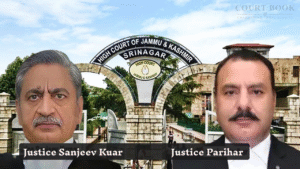The Supreme Court recently ruled that long undertrial detention violates an accused's fundamental right to a speedy trial, as guaranteed under Article 21 of the Indian Constitution. A bench comprising Justices JB Pardiwala and R Mahadevan granted bail to an accused who had been in custody for over five years under the Unlawful Activities (Prevention) Act (UAPA).
The accused, Tapas Kumar Palit, was arrested in 2020 by the Chhattisgarh Police on allegations of carrying materials allegedly used for Naxalite activities. Since his arrest, he had been in judicial custody while the prosecution planned to examine 100 witnesses, out of which 42 had already testified.
The Supreme Court raised concerns about the necessity of examining 100 witnesses, especially when many of the 42 already examined had given similar testimonies. The Court referred to the landmark case Malak Khan vs. Emperor [AIR 1946 Privy Council 16] and observed:
"Where the number of witnesses is large, it is not, in our opinion, necessary that everyone should be produced."
The judges further noted that prolonged trials hamper the overall life of the accused. Many undertrial prisoners endure financial hardships, loss of employment, damage to personal relationships, and social stigma while awaiting their final verdict. If acquitted, they receive no financial compensation for their wrongful incarceration.
"If an accused is to get a final verdict after incarceration of six to seven years as an undertrial prisoner, then, definitely, it could be said that his right to have a speedy trial under Article 21 of the Constitution has been infringed."
Read Also:- 26 Principles on Compassionate Appointment: Supreme Court’s Clarification
Judicial Delays Harm Accused, Victims, and the Justice System
The Court acknowledged that delays in the judicial process are detrimental to both the accused and the victims. It emphasized that an efficient criminal justice system is essential for maintaining public trust.
"Delays are bad for the accused, extremely bad for the victims, and harmful to the credibility of our justice system. Judges are the masters of their courtrooms, and the Criminal Procedure Code provides many tools to ensure cases proceed efficiently."
Bail Granted with Conditions
Taking these concerns into account, the Supreme Court set aside the High Court’s decision and granted bail to the accused. However, strict conditions were imposed:
- The accused cannot enter Kanker district in Chhattisgarh.
- He must attend hearings online unless required for specific proceedings.
- If he violates any bail condition, his bail will be automatically canceled.















